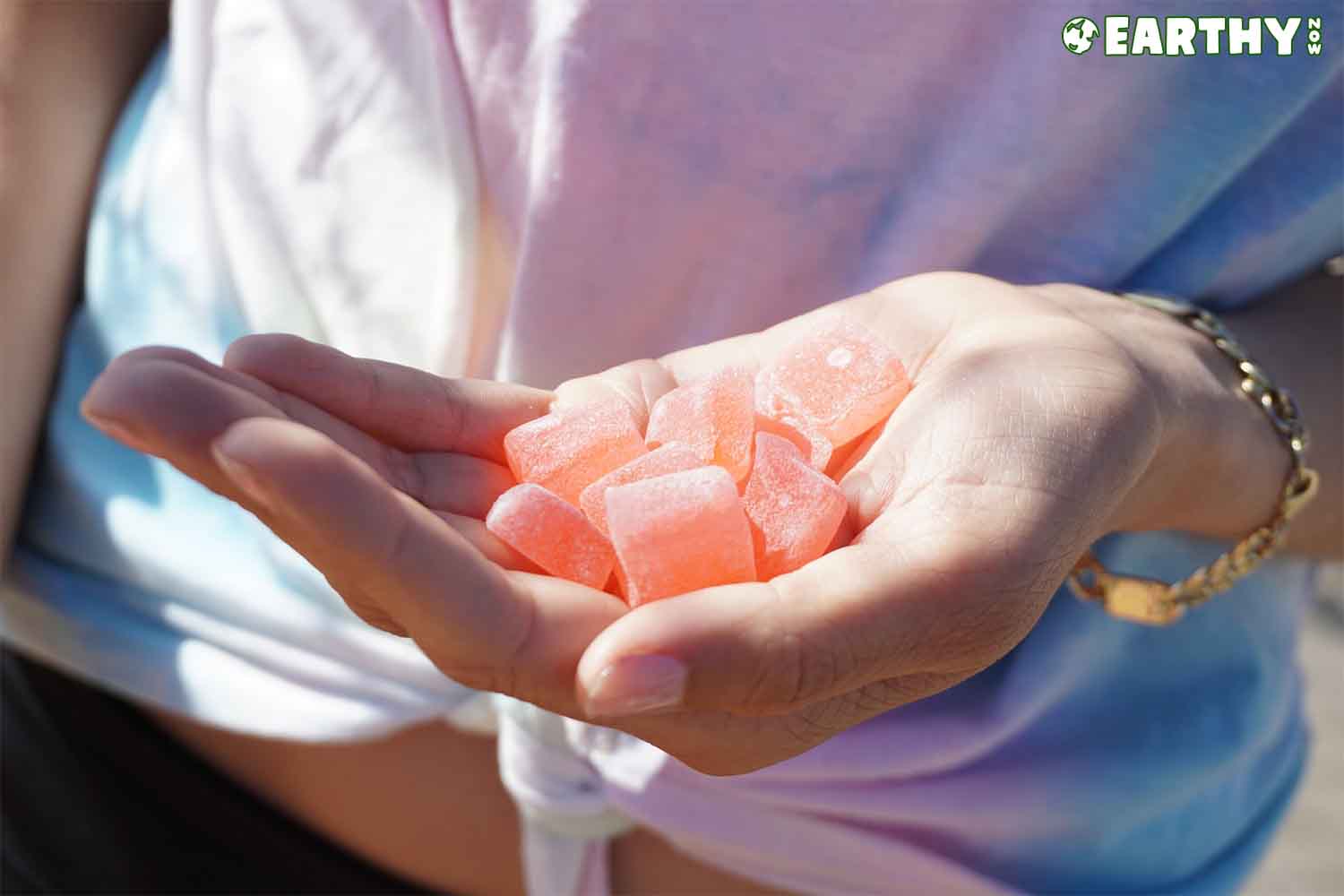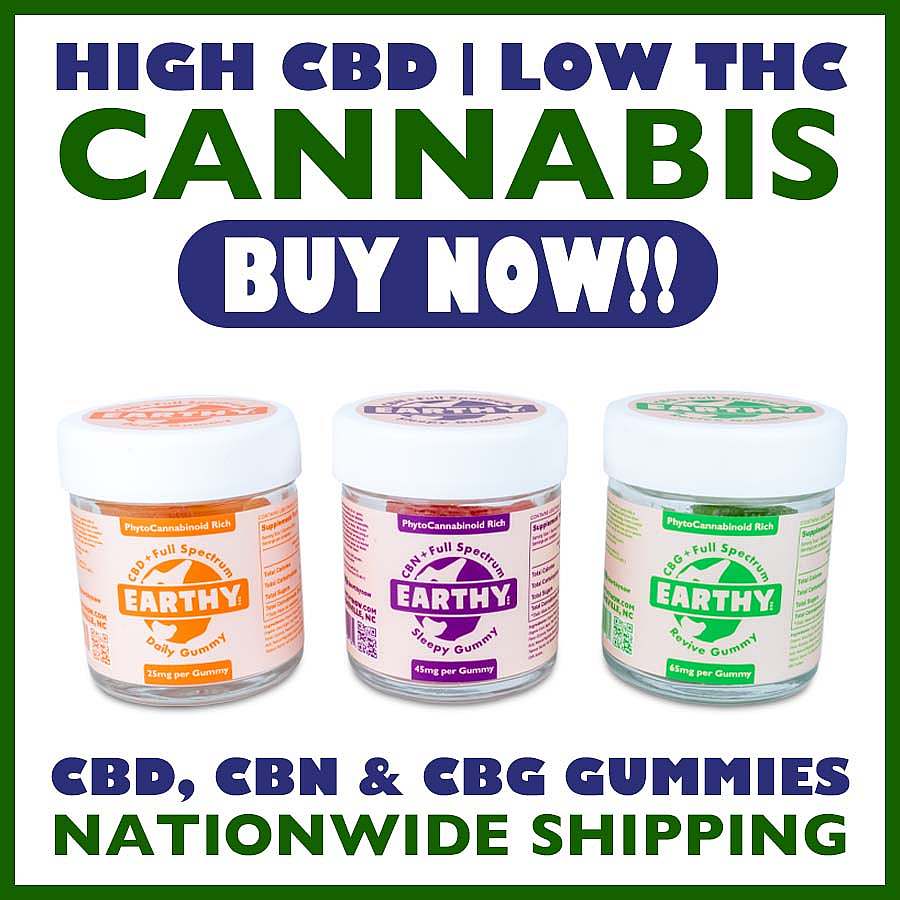Cannabis derivatives have become enormously popular over the last several years as the wellness industry erupts with cannibinoid-based products, from lotions to edibles. But what do these products mean in relation to drug tests? Well, it’s slightly complicated. CBD is a cannabinoid with no psychoactive component, and it will likely not show up on a drug test, but full spectrum products have low levels of THC mean it can happen. Is it the same situation with CBN? Read on because it can be less black and white than you may think.
Though not as well-known as CBD or THC, CBN (cannabinol) has gained fame as a possible sleep aid, yet science is yet to back up these claims. However, with this cannibinoid gaining popularity, it’s important for healthcare providers to understand how CBN-based products interact with the body’s systems and determine whether or not its THC metabolite component may show up on a drug test.
The last thing CBN users want is to fail a drug test when they’ve not consumed marijuana. A false positive result can create unnecessary problems with getting a job or receiving medication.
The good news is: it’s unlikely that CBN will cause a false positive on a drug test. However, it’s important to educate yourself about these risks as well as the proper ways in which CBN products should be used.
What is CBN?
CBN has recently garnered a loyal following among cannabis enthusiasts. Though not yet as studied or as well-known as CBD or THC, CBN offers its own host of attractions. One of the many cannabinoids in the cannabis plant, CBN may have a cross-reactivity in urinalysis tests to detect THC, yet the concentrations would have to be significant. Therefore, it’s possible to receive a positive marijuana result, (or false positive), in a drug screen if a substantial amount of CBN is consumed beforehand [1].
CBN forms naturally when THC breaks down due to heat, air, or light exposure. This is why CBN is often found in cannabis that has been aged and stored for a period of time. Sometimes mildly psychoactive, CBN binds more often to the CB2 cannabinoid receptors than with CB1 receptors.
These two well-characterized cannabinoid receptors seem to have distinct physiological properties, whereby CB2 deals more with psychoactive properties and CB1 more with other responses [2]. Notably, CBN doesn’t cause the intense intoxicating psychoactive effects associated with THC [2].
Because CBN is a broken-down form of THC, it may contain some THC metabolites that could potentially show up on a drug test.
Learn more in the Guide to CBG and CBN
Benefits of CBN
Recent preclinical research suggests CBN may be therapeutic in several ways to animals, though data is scarce when it comes to human trials.
For instance, a recent animal study encouraged researchers that CBN may have usefulness for humans, yet clinical studies have yet to test this theory [3].
Anecdotal reports additionally indicate that CBN may promote rest, but more research is needed to determine if this may be caused by CBN alone or in concert with other factors.
Nonetheless, the chemical makeup of CBN may act synergistically with other cannabinoids and terpenes to cause this and/or other effects. These potential outcomes may relate to what is known as the entourage effect [4]. Therefore, the better sleep and relief that people experience with CBN may be related to the ways in which the cannabinoid interacts with the other compounds in the cannabis plant and the endocannabinoid system.
How to Use CBN Oil: A Beginner’s Guide
What is the endocannabinoid system?
Critical for almost every aspect of our functioning, the endocannabinoid system (ECS) has a unique relationship with the cannabis plant [5]. While many of us have heard of chemical transmitter systems like the central nervous system, fewer have heard of the more recently discovered endocannabinoid system.
The body’s ECS affects our perceptions by activating a complex network of chemical signals and receptors that exist throughout the human brain and body. These cannabinoid receptors (including CB1 and CB2 receptors) are stimulated by cannabinoids: either endocannabinoids (made by our body) or phytocannabinoids (made from plants).
Each type influences our bodily functions by turning up or down neural activity and making adjustments about things like hunger, temperature, or alertness. CB1 receptors mediate most of the psychoactive effects of certain cannabinoids, whereas CB2 receptors are principally involved in anti-inflammatory and immunosuppressive responses [6].
In the ECS, our natural receptors get stimulated by its endocannabinoids: molecules that have a structural similarity to molecules in the cannabis plant. These tiny cannabis-like molecules float through our brains and bodies, affecting our sensations and perceptions.
Likewise, the effects of the cannabis plant occur when cannabis molecules (cannabinoids or phytocannabinoids) attach to our bodies’ ancient cellular machinery and engage with the cannabinoid receptors.
CBN is only one of the hundreds of cannabinoids in the cannabis plant that interact with the ECS when consumed [5].
The Difference Between CBD, CBG, and CBN: Exploring Cannabinoids for Wellness
Does CBN get you high?
The effects of CBN are different and milder than THC. It may be mood-altering in a sense but is not intoxicating. THC is the main substance in cannabis that makes people feel high, and though CBN forms when THC degrades, most of its psychoactive effect vanishes in the process.
The strength of the effects of both CBN or THC (as well as other cannabinoids) on a particular person will differ depending on a few things: dosage level, body weight, food or other substances in the system, and experience/tolerance level based on individual body chemistry [7].
CBN Gummies Review: What Does CBN Do?
Can CBN show up as THC on a drug test?
Several studies indicate it may be possible for CBN to affect the outcome of drug tests, though more research is needed. Therefore, it’s important to inform your doctor about any CBN products you may be taking so that if a drug test yields false positives, your doctor will know that the false positive for THC may be the result of THC metabolites being present because of CBN consumption [8].
Here’s an example of why this issue is critical: certain healthcare institutions prohibit patients from using THC products while using opioids for the treatment of pain. Therefore, if these patients test falsely positive for THC usage as a consequence of taking a CBN product, they may have their prescriptions withheld.
What does hemp-derived mean?
The 2018 Farm Bill (see next section) established new federal legal definitions and rules for hemp. In short, the new definition of an acceptable “hemp-derived” product states that any part of the hemp plant is permissible under federal law, with certain exceptions: the hemp plant and “any part of that plant, including the seeds thereof and all derivatives, extracts, cannabinoids, isomers, acids, salts, and salts of isomers, whether growing or not, with a delta-9 tetrahydrocannabinol concentration of not more than 0.3 percent on a dry weight basis” may be used for production, sales, transport, and use.
Hemp plant derivatives include cannabinoids like CBN, CBD, Delta-8 THC, Delta-9 THC, and Delta-10 THC. These and other cannabinoids are federally compliant for use in myriad products when their percentages contain less than 0.3% THC [9].
Is CBN federally legal?
For many years in the U.S., cannabis was illegal according to federal law, whether or not it contained Delta-9 THC; the main psychoactive chemical that occurs naturally in the plant. In the 2010s, the United States Congress enacted two pieces of legislation called the Farm Bills.
These Bills recognized that hemp with very low Delta-9 THC concentration is distinct from higher-THC cannabis. In addition to the hemp plant, hemp extracts and hemp products, including CBN and THC isomers, are also allowed by the Farm Bills [9].
Thus, it is now abundantly clear that CBN products (as well as any other products derived from hemp that comply with the above stipulations) are legal under current federal law.
The Farm Bills and the resurgence of hemp farming
Hemp’s commercial resurgence came after the 2014 Farm Bill removed hemp from the Drug Enforcement Agency (DEA) list of Schedule 1 substances. The Bill made hemp federally legal and allowed long-forbidden research into hemp-derived cannabinoids to begin in earnest.
The 2018 Farm Bill expanded on this, allowing people to produce, sell, and consume hemp-derived products, making it clear to legal experts that all other plant materials and substances derived from legally-defined hemp (including cannabinoids such as CBD and CBN) are also federally-compliant [9].
Since then, federal legislation defines cannabis plants with less than 0.3% of Delta-9 THC per dry weight as hemp plants and allows hemp production and consumption in all 50 states. On the other hand, a plant with more than 0.3% Delta-9 THC per dry weight is defined as marijuana, which federal law still treats as a controlled substance on the DEA’s Schedule 1 list.
Nonetheless, many states now allow medical use and/or adult recreational use of marijuana containing much more than 0.3% Delta-9 THC. And the list is growing.
Cannabis by any other name
The Farm Bill, drafted by the federal government, uses this definition:
Hemp–The term `hemp’ means the plant Cannabis sativa L. and any part of that plant, including the seeds thereof and all derivatives, extracts, cannabinoids, isomers, acids, salts, and salts of isomers, whether growing or not, with a delta-9 tetrahydrocannabinol concentration of not more than 0.3 percent on a dry weight basis [10].
Following the Farm Bills, most states passed similar laws while adopting similar definitions of hemp. This resulted in the widespread commercialization of hemp products that are not considered controlled substances by the DEA at the federal level.
The difference between full-spectrum and broad-spectrum
Full-spectrum cannabis products utilize all of the cannabinoids and compounds of the cannabis plant, including up to 0.3% THC per dry weight. The entourage effect is believed to be related to the complete panoply of cannabis compounds working together.
In contrast, broad-spectrum products contain some or all of the same compounds as full-spectrum products, except for the THC [11].
To learn more about hemp derived products, read the Guide to CBD.
What is CBN distillate versus isolate?
CBN distillate is a distilled extract that contains high concentrations of CBN. While distillate is purer than a crude extract, it still includes some other cannabinoids, terpenes, and compounds that are naturally present in hemp flowers.
CBN isolate, in contrast, contains that particular cannabinoid only, excluding all of the other cannabinoids and compounds [12].
When to consume CBN
Most people use CBN products in the evening or when relaxation is the goal. It can, however, be taken any time of day, and even multiple times per day, depending on personal preferences. Each person’s desired results and maintenance level is unique to their own system.
Where do you start? If you are unsure what your CBN needs are, many users start taking CBN by trying smaller amounts at first and moving on to higher levels until they reach their desired effects.
As mentioned above, CBN can be taken at the same time (or times) each day to maintain a consistent level of CBN in your body. Again, the amounts and frequency of CBN needed will be different for different individuals.
Consumption methods
CBN may be consumed in products like gummies, lozenges, or oils. The method of consumption however should not have a major effect on how you will fare on a drug test for THC.
Sublingual administration involves placing gummies, drops, or lozenges under the tongue for 30-60 seconds, where they are then absorbed directly into the bloodstream through the tissue. Buccal administration involves placing them between your gums and cheek, where they are absorbed likewise [13].
It’s totally fine to swallow the CBN products too, but the effect may be different. If you don’t hold the substance under your tongue or between your cheek and gum, more of the CBN that is swallowed may be digested before entering the bloodstream, potentially causing a less potent effect [14].
However, the method of consumption should not have an effect on test results.
How much CBD should I consume?
While products generally have a suggested dose listed on each package, the strength of the CBN effects on a particular person will differ depending on a few things: the dosage level, body weight, food or other substances in the system, and personal body chemistry. So following serving sizes is not a factor when it comes to drug testing.
The bottom line
Many people enjoy the effects and rituals of consuming a CBN product for various reasons. However, if you plan to take a drug test meant to detect THC metabolites, it’s important to let your healthcare provider know about your CBN consumption. This way, if you receive a false positive on your drug test, your doctor will be able to identify the possible cause.
Likewise if you’re concerned about THC drug testing in your place of employment, try to find out what sort of testing methodology is used so you can anticipate and avoid any possible issues.
Medical Disclaimer / Legal Disclaimer – Information is provided for educational purposes. It does not and is not intended to constitute legal advice or medical advice. We attempt to be accurate and up-to-date, but the legality of cannabinoids and the science of cannabis are evolving. The author is neither a legal professional nor a medical expert. Before buying or using any products, you should check with your local authorities and medical providers.
References
- Cannabinol Cross Reacts with Two Urine Immunoassays Designed to Detect THC Metabolite
- Wikipedia: Cannabinol
- Forbes: What is CBN?
- Wikipedia: Entourage Effect
- Harvard: The Endocannabinoid System: Essential and Mysterious
- CB1 and CB2 Cannabinoid Receptors in the Brain
- Cannabinol Cross Reacts with Two Urine Immunoassays Designed to Detect THC Metabolite
- HIA Position Statement on Delta 8 and Hemp Cannabinoids
- Hemp Production and 2018 Farm Bill
- Full-Spectrum vs Broad-Spectrum CBD FAQs
- CBN Comparison: Distillate vs Isolate
- Sublingual and Buccal Medication Administration
- CBD Oil Under Tongue





